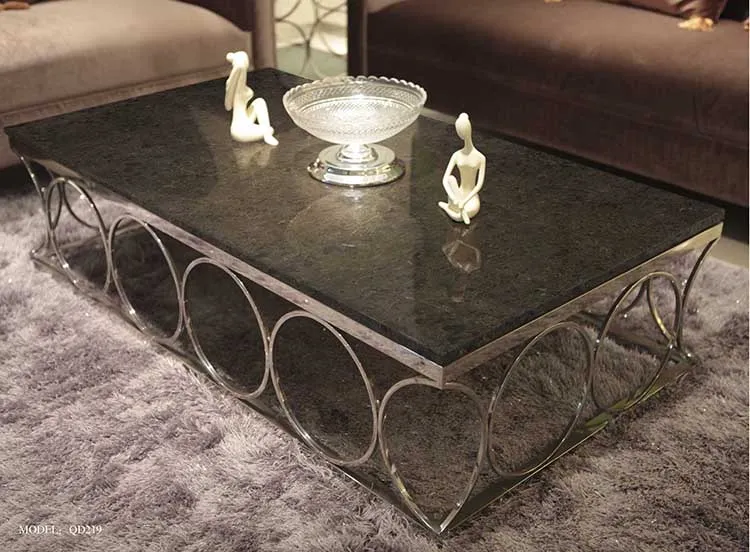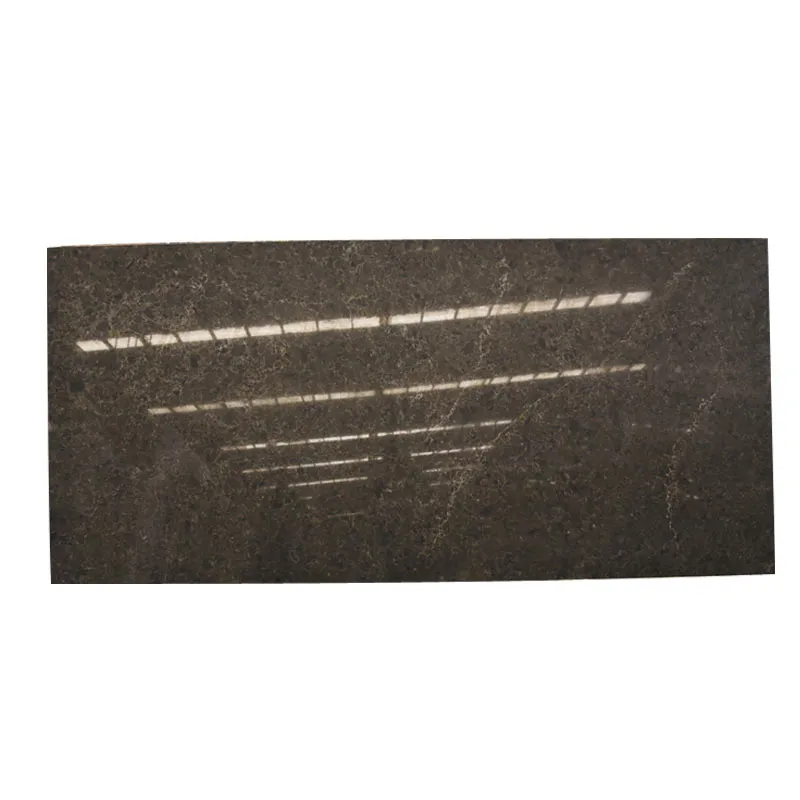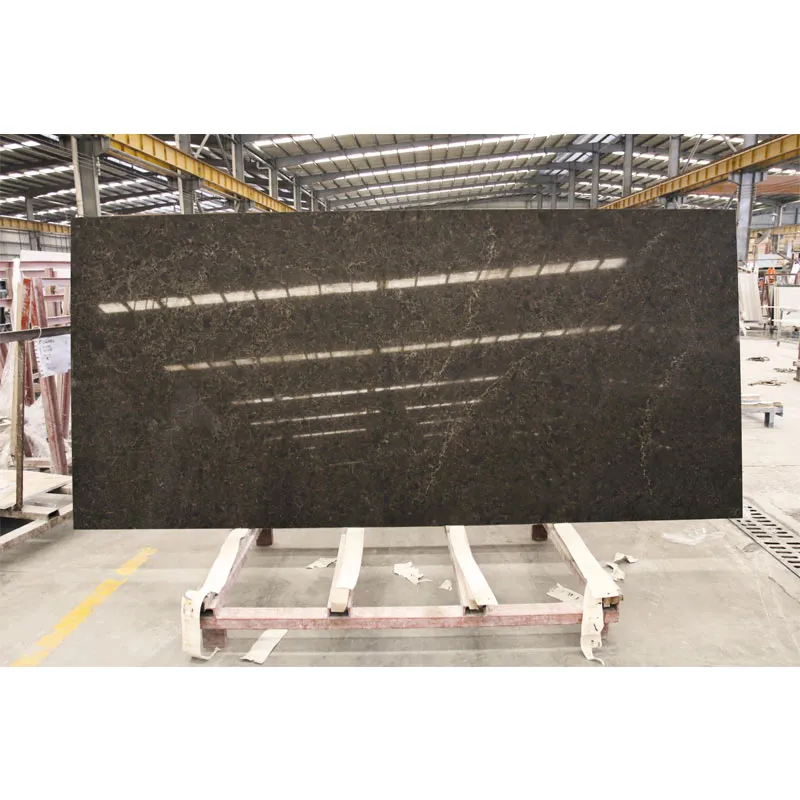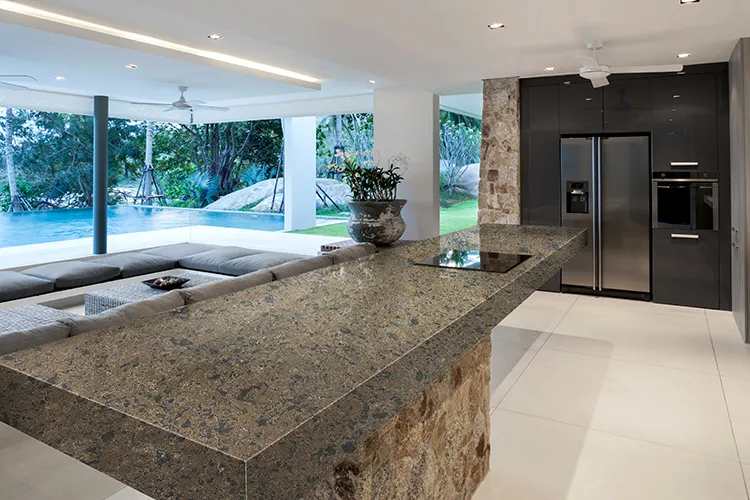In recent years, as people's demand for home decoration beauty, durability and practicality has increased, the choice of kitchen countertops has expanded beyond traditional marble. Quartz countertops have gradually become a popular choice for modern families due to their excellent performance and aesthetic advantages. Although marble countertops are known for their natural beautiful textures, quartz countertops have an advantage in terms of performance.
This article will explore why quartz worktops are the perfect replacement for marble and answer key questions about the performance, maintenance and installation of both materials.

Why do quartz countertops look like marble?
1. How does the aesthetic design of quartz achieve the appearance of marble?
The appearance design of quartz countertops is flexible and can imitate the rich texture and color effects of natural marble. This highly realistic "imitation stone" effect is due to the colorants and texture design during its production process. Quartz is made of natural quartz minerals mixed with resins, pigments and other additives, so different pigments can be added during the production process to control the direction of the texture pattern, the depth of color, and even simulate the subtle lines in marble.
In home decoration, consumers often want to keep the beauty of natural stone while reducing its high price and complex maintenance costs. Quartz countertops, with their exquisite design, can present the texture and gloss of natural marble, meeting consumers' requirements for visual effects. Today, quartz manufacturers can precisely control the texture arrangement of each quartz countertop to create a uniform and unified appearance, avoiding the uneven texture or color difference of natural marble due to natural generation.
2. How does the diversity of quartz enrich decoration options?
Compared with natural marble, quartz has more flexible and diverse color and texture designs. The color and texture of natural marble are usually limited by the distribution of naturally formed minerals, while quartz can produce countless color combinations through artificial blending, from classic black, white and gray to bolder blue, green and even metallic colors. At the same time, its surface texture can also be adjusted to matte, semi-matte or high gloss according to consumer needs to meet the needs of different decorative styles. This diversity of choice allows quartz worktops to be easily integrated into modern, simple, retro and other styles of decoration.

Does the durability of quartz countertops exceed that of marble?
1. How big is the difference in hardness between quartz and marble?
Quartz is extremely hard. Its main component, quartz mineral, has a Mohs hardness of 7, while marble is mainly composed of calcium carbonate and has a Mohs hardness of 3-4. The difference in hardness directly affects the wear resistance and scratch resistance of the material. Since quartz is harder, it is not easy to be scratched by knives, utensils, etc. in daily use in the kitchen. However, marble countertops are more prone to scratches and wear under frequent use, affecting the appearance and life. Therefore, for frequently used kitchen countertops, quartz has more advantages due to its high hardness.
2. Does quartz have better stain resistance?
Quartz countertops have excellent stain resistance, mainly due to their low porosity. Quartz countertops are pressed under high pressure during the production process, with a dense internal structure and almost no pores on the surface, making it difficult for liquids such as water and oil to penetrate, and have natural stain resistance. Marble countertops have large pores, which are easy for liquids to penetrate. Especially when in contact with acidic substances (such as lemon juice, vinegar, etc.), chemical reactions may occur, causing darkening of the color or stains. Therefore, quartz has better stain resistance, which also means lower maintenance costs.

Are quartz countertops more environmentally friendly?
1. Does the production process of quartz meet environmental standards?
Natural minerals and environmentally friendly resins are used in the production process of quartz. Through the optimization of modern processes, the consumption of a large number of natural mineral resources is reduced. This not only effectively controls the waste of resources, but also avoids the damage to the environment that may be caused when mining natural marble. In addition, many quartz manufacturers also apply environmentally friendly process technology in the production process, which effectively reduces the emission of wastewater and waste gas, and meets modern environmental standards.
2. Is quartz safer for health?
The dense structure of quartz makes it highly resistant to bacteria and effectively inhibits the growth of bacteria. Compared with the porous surface of marble, quartz is not easy to accumulate impurities such as food residues, so it can keep the countertop clean and hygienic. In addition, many quartz brands have food-grade certified production materials, which will not produce harmful substances even when used to handle food, making them particularly suitable for home kitchens. In contrast, natural marble surfaces may accumulate bacteria and dirt, requiring additional cleaning and maintenance.
Are quartz worktops cheaper to maintain?
1. Is quartz easier to maintain?
Quartz countertops require almost no special maintenance in daily use, and only require simple cleaning to maintain their beauty. Due to their low porosity and high density, quartz countertops do not require regular sealing treatments like marble. For marble countertops, regular sealing can effectively prevent liquid penetration, but this operation is time-consuming and labor-intensive, and requires the use of special sealers. Quartz worktops only require mild neutral detergents to clean daily stains, and are easy to maintain and low in cost.
2. Will there be any problems with quartz during use?
Although quartz countertops have superior hardness and durability, they are not completely impeccable. Placing an object with too high a temperature (such as a pot that has just boiled) on a quartz countertop may cause thermal shock, resulting in fine cracks on the surface. Therefore, although quartz worktops are better than marble in terms of heat resistance, it is still recommended to use an insulation pad between the hot object and the countertop. In addition, quartz worktops may fade slightly under long-term direct sunlight, so long-term sun exposure should be avoided as much as possible.

Is there a big cost difference between quartz and marble?
1. Why is the price of quartz countertops relatively stable?
The production of quartz is not limited by the scarcity of natural minerals, and the supply of raw materials is relatively sufficient, so the price of quartz countertops is relatively stable in the market. In addition, since it does not require complex processing procedures, many factories can efficiently complete mass production when producing quartz, reducing labor and time costs. In contrast, the price of marble countertops is limited by mining costs and processing fees, and the scarcity of high-quality natural marble resources makes it more expensive.
2. Is quartz worktops more cost-effective?
Although the initial price of quartz countertops may be slightly higher than that of ordinary natural marble, considering the longer service life and low maintenance cost of quartz, its overall cost performance is higher. Marble countertops are easy to wear out during use and require regular maintenance and repairs, and these additional costs will continue to accumulate in long-term use. Overall, due to its high hardness, stain resistance and low maintenance requirements, the total cost of quartz worktops is much lower than that of marble, and the cost performance is more obvious.

